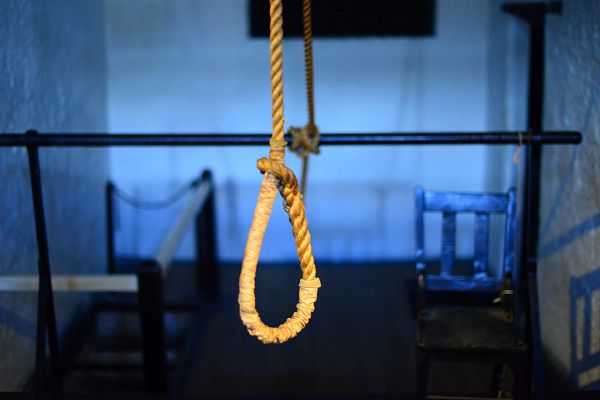
How leaders are turned monsters…and hanged
Regarding Kwame Nkrumah’s period in Ghana’s politics, we are often fed with a glorious one-sided narrative that seems to project the best side of Ghana’s first great leader.
However, very recently, thanks to a portal that collects videos and images of major historic events, many Ghanaians are now exposed to the downsides of Dr Nkrumah’s rule.
Advertisement
Two of such videos in particular, make for interesting viewing. In one, Nkrumah’s political prisoners have been freed from the Ussher Fort Prison after his overthrow and they are emotionally united with their families and friends.
In the other, jubilant crowds are marching through the streets of Accra chanting in celebration at the overthrow of Nkrumah. These footages do not portray Dr Nkrumah entirely as a hero.
Watching in particular the video of the celebrating crowds, anyone who has not had the opportunity to listen to or read about the negatives of the Nkrumah era will be completely shocked at the scenes in the 1.35 minutes video. And indeed, the majority of Ghanaians have had little opportunity to fully learn about the Nkrumah era.
In the footage, some of the more visible placards read, “We demand trial of Nkrumah”, “Ghanaians are now free”, “No more hero worshipping”, “Nkrumah, Africa’s No.1 dictator”, while another had caricature of Nkrumah captioned, “Sasabonsam”.
Far better
Even for those who have a fully rounded view of Nkrumah’s era, most are quick to dismiss the jubilant actors in these videos as “traitors” and “agents of Western imperialists” of the time.
This is because having had the opportunity to compare Nkrumah with other leaders who came after him, in Ghana and in Africa, there is now the realisation that the overthrow of Nkrumah was a paramount mistake.
Despite all his ills, Nkrumah is a far better leader than those who have come after him on the continent. Unfortunately, this conclusion is based solely on the benefit of hindsight.
If one were to contextualise history properly, perhaps 54 years ago, his overthrow and the spontaneous celebration made sense, and might have been a true manifestation of the lived experiences of the people at the time.
Another picture on the portal is an image of Kwame Nkrumah in Vietnam after the overthrow, seated with his head held in his hands, looking sullen with eyes affixed to the ground.
One can just visualise his emotional state at the time: depressed, shocked, in a state of disbelief, a feeling of betrayal and even fear, particularly at the jubilation and frenzied destruction of monuments bearing his name by the same people who once upon a time idolised him and called him “the infallible”, “saviour”, “show boy”.
These negative emotional feelings, particularly the feeling of betrayal, could have precipitated his death. Why? He had done so much for the country: independence, sense of pride in being an African, literally putting Ghana on the map, infrastructure development, social programmes, etc., that he never thought he would be treated the way he was treated.
Tragically
More tragically for him, most of the negatives of his era were done with the full support and even prodding of the very same people who were jubilating. As gatekeepers, they succeeded in keeping the truth about the state of affairs in the country from him, blurring his vision and understanding of what was going on.
They lied to him, gave him their own twisted version of events, which rather painted them as heroes and his die-hard loyalists. He believed them. They created enmity between him and his hitherto allies.
They told him that everything was fine and that those who were complaining were being under influenced by the “colonialists” and “imperialist forces”. He in turn dug in his heels and listened to them even more intently. He also rewarded them for giving him information and made sure to take actions that would satisfy them.
Monsters
Throughout history, this is how followers have turned their leaders into monsters and eventually hanged them. In today’s Ghana, how easy is it for a random member of society who does not belong to a leader’s close network to have access to them to address a genuine issue?
In addition to holders of public office, many leaders in corporate establishments, traditional authority and business have completely lost touch with the people and reality because of the gatekeeper syndrome. How to address the gatekeeper problem?
The following example could help. The first time I saw a front-and-back business card was one that I received from a Member of the UK House of Commons about 15 years ago.
It was a six inches by six inches card which had a picture of the MP, as well as his mobile, office and home contacts, email address, all social media handles, and most interesting for me, venues and the time of the week when he was available to meet with his constituents!
Writer’s E-mail: [email protected]
Mob. 024-314-3-502



